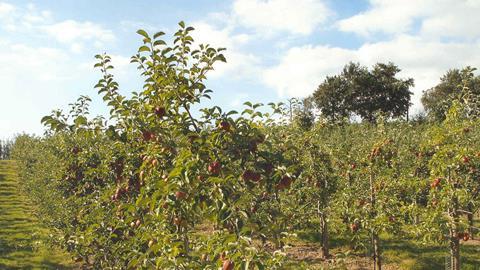Analysis by CHAP and AHDB aims to give growers the tools to get closer to net zero
A baseline benchmark of UK horticulture’s greenhouse gas emissions has been published in a new industry report.
The work has been conducted by Crop Health and Protection (CHAP) and AHDB to help sectors identify areas for improvement and opportunities available to facilitate positive change.
It was done with a view to helping farmers and growers reach net zero, optimise their opportunities to capture carbon, and potentially support other sectors in the drive to reduce the impact of climate change.
Innovation network lead for CHAP, Dr Harry Langford, explained: “Farming and wider land management are fundamental to achieving a net-zero economy and stabilising global temperatures. This report was instigated to provide a baseline and knowledge base to support every farmer to make ambitious changes, and every innovator to develop ambitious solutions, to deliver a sustainable and resilient future for UK agriculture.
“The sooner we innovate and transition, the greater the benefits will be, and the greater the role UK businesses will have in leading the world’s transformation.”
To formulate the data in the report, an evidence base of existing greenhouse gas emission assessments for UK horticultural and arable crops was pooled. International data was also included for comparison purposes.
This was then evaluated to produce benchmark emissions for key crops, identifying the most important emission sources. Opportunities for reducing emission hotspots were also identified, along with opportunities to increase carbon removals.
Finally, a brief overview of new technologies available to mitigate emissions was also listed.
Head of environment and resource management at AHDB, Dr Jonathan Foot, said: “UK farming is facing a once-in-a-generation shift towards a future where levy payers will need to manage both sustainable environmental and economic outcomes within their business.
“This report is the first step of many from AHDB, in ensuring levy payers have the independent and trusted information they need to begin their journey to net zero. Enabling our industry to lead sustainable change whilst continuing to produce safe, affordable, and accessible food for all.”
The report was collated for CHAP and AHDB by ADAS, and can be accessed here.




